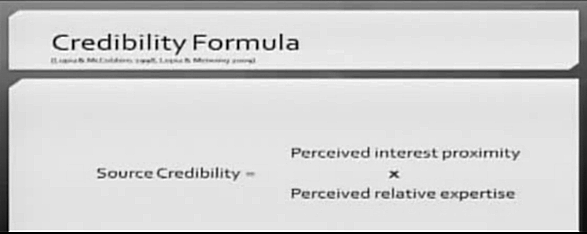
Political scientist Arthur Lupia gave one of the keynote talks at the National Academy of Sciences colloquium on social science research in science communication.
This part caught my attention (beginning at 23:50), which Lupia summarizes with the credibility formula above:
The key thing to know about credibility is that it is domain specific and bestowed by an audience.
Here’s an example: Most people in the room probably think that Mercedes makes a fine automobile. They have a reputation for fine automobiles. But would you buy a Mercedes breakfast cereal? What would that taste like? Would it be high quality or would it taste like German motor oil?
So there’s credibility in one domain but not in another. You might be credible as a scientist, but if you don’t share people’s values, are they really going to believe you? …
There have been moments in my career when I have been approached by faith leaders. And the question’s been asked: How should I write a sermon about climate change?
And the advice that I give is: I wouldn’t. Because you are not credible as a scientist.
But what you do know, if you’ve been doing this for a long time is that you have some sermons where you know that the whole congregation is there with you. And they reach the apex with you. And you’re talking about shared values.
Do you have a sermon where you talk about responsibility, where you talk about stewardship, where you talk about shared values? Right when you reach the apex, and everybody’s with you in terms of attention, you say: If we all believe in stewardship and responsibility, then climate is part of what we’re responsible for as well.
Update: Arthur Lupia mentions his book The Democratic Dilemma: Can Citizens Learn What They Need to Know? as background for this research.
Source: video (May 21-22, 2012)

